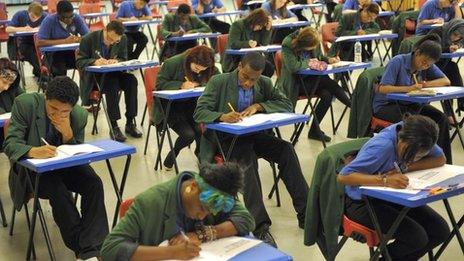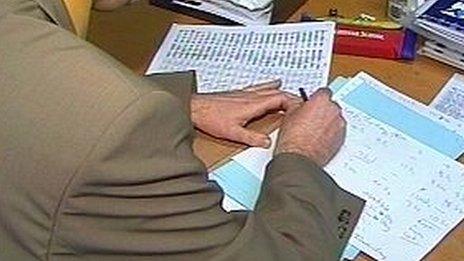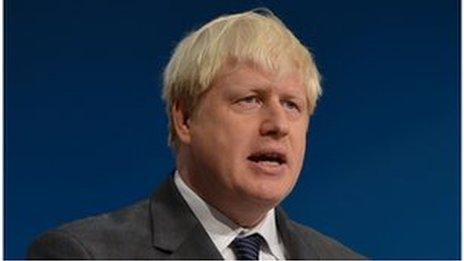Let us oversee all state schools, say local authorities
- Published

Local education trusts, overseen by local authorities, should hold all state schools to account, says the LGA
Parents in England should have access to a single local body responsible for standards in all state schools, says the Local Government Association (LGA).
The LGA says the current structure, with councils responsible for most schools but academies and free schools answering to Whitehall, is confusing and lets issues "slip through the net".
It wants local education "trusts" to oversee all types of state school.
The Independent Academies Association called it "a step back into the past".
The LGA says the current system is so complicated that parents often don't know how to make complaints or raise issues.
'Confusing and bureaucratic'
Academies and free schools, which now number about 3,500, are independent of local authority control and accountable directly to Whitehall which, says the LGA, "acknowledges it lacks the capacity and local knowledge to provide oversight". It says that local authorities, while responsible for 84% of schools, lack adequate powers to hold the growing number of these other schools to account.
A new LGA document sets out a wish list for the first 100 days, external of a new government, following the 2015 election.
It urges the government to set up local "education trusts" for all schools, including academies and free schools, which would bring together head teachers and governors, "supported and held to account" by local councils.
Good and outstanding schools would share expertise and support improvement, says the LGA, "leaving Ofsted free to focus on schools which require improvement".
"The current two-tier system of accountability is confusing for mums and dads to navigate... there are too many possibilities for issues to slip through the net," said David Simmonds, chairman of the LGA's children and young people board.
"Education trusts would strip away this bureaucracy and provide an easily identifiable place which parents can turn to.
"Someone has to take responsibility for accountability of schools and with local knowledge and links to the community councils are ideally placed to take this role," said Mr Simmonds.
'Middle tier'
Traditionally, local authorities have had a role in monitoring standards in the schools they control, acting as a "middle tier" between schools and the Department for Education.

Parents can find the system so complicated they often don't know how to raise issues or make complaints, says the LGA
Concerns have been expressed about the viability of Whitehall monitoring thousands of academies.
The government is introducing regional schools commissioners and head-teacher boards to improve oversight of academies, while Labour proposes a network of regional school standards directors.
'Faster improvement'
Nick Weller, chairman of the Independent Academies Association, described the LGA proposals as "the latest attempt to resurrect the discredited system of local authority control.
"The first 200 academies were established to replace maintained schools which did not provide a good or better education for their students and which had themselves been failed for years by their local authority.
"Those academies have since gone on to improve much faster than other schools nationally over a sustained period of time: why would we now want to return them to the failures of the past?"
Brian Lightman, general secretary of the Association of School and College Leaders said: "The LGA is right to recognise that the diverse nature of schools today can be confusing to parents, however another layer of structural change is not the solution.
"School improvement needs to be driven by school leaders, within a strong national accountability framework."
Russell Hobby, general secretary of the National Association of Head Teachers, said: "NAHT believes every school should be working in a trust, federation or cluster with other schools, with streamlined accountability to one overarching body.
"Ideally, however, these groupings would be small: half a dozen to a dozen schools, rather than encompassing an entire authority."
A Department for Education spokesman said: "Academies are giving hope to children who have been failed by councils.
"Since 2010 we have taken 900 schools which were failing under council control and turned them into academies with the support of a strong sponsor."
The spokesman said results and Ofsted ratings were improving faster in academies than in council-run schools but the government's new regional schools commissioners and head teacher boards would "ensure swift action is taken in the small number of cases where academies are struggling".
- Published30 April 2014

- Published21 November 2013

- Published6 November 2013

- Published19 October 2012
